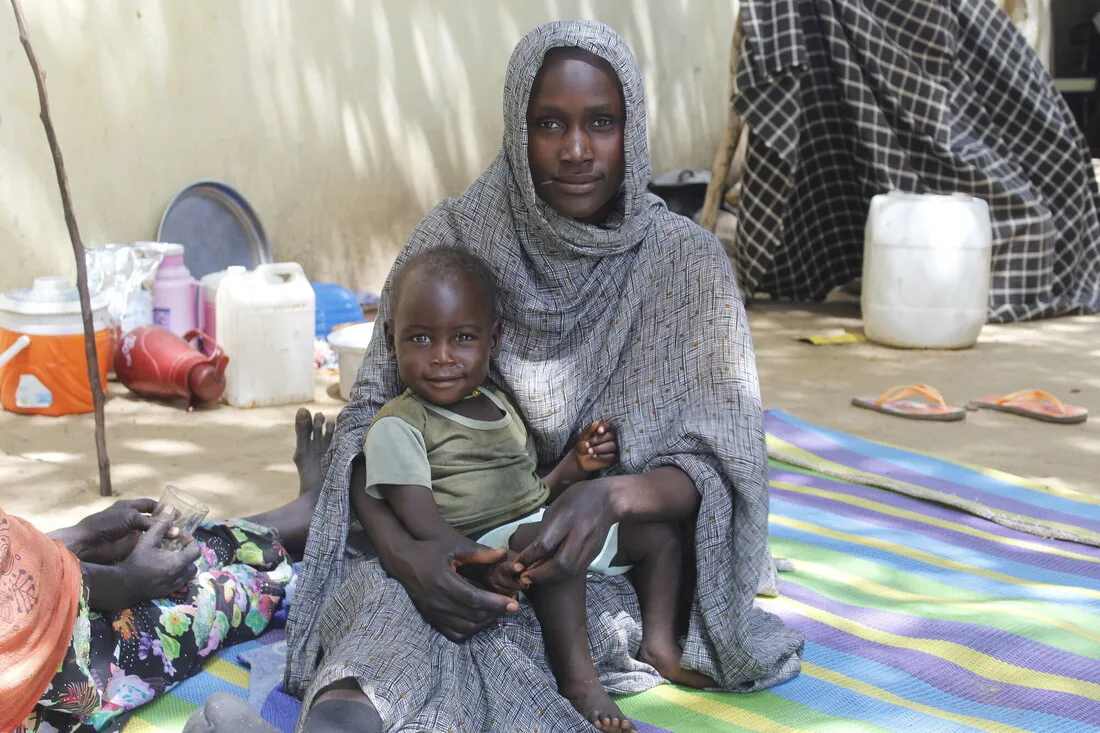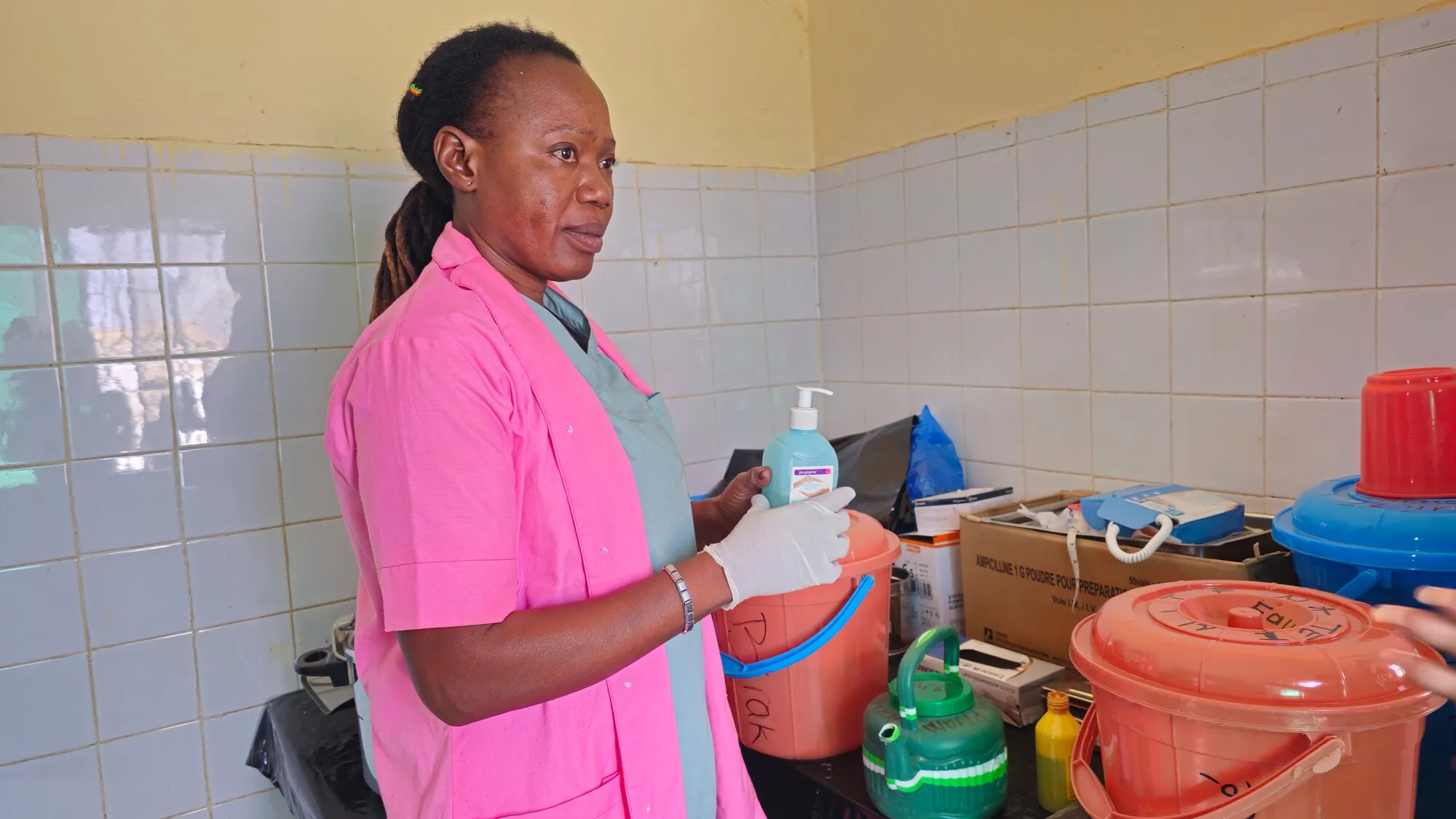He was shot in the hip when violence tore through their village in Darfur. For Mariam, 22, this health center is both a sanctuary and a painful reminder of all she’s lost.
Her peaceful life was shattered when her village in Sudan was attacked. Amid the chaos of gunfire, her husband was struck by a bullet. With no time to grieve or prepare, Mariam gathered her family—her injured husband, their infant son, and her mother-in-law—and fled on horseback. The journey to Chad took two long, terrifying days, all while Miriam feared they might be attacked again.
Now, at the health center, the family faces an uncertain future. “I do not know where to go from here,” Miriam says, her voice heavy with despair. “We have lost everything.”
The health center, supported by CARE with funding from the European Union, is bursting at the seams. Each day, more refugees arrive, often with injuries or urgent medical needs. Since September 2024, the center has seen an average of four new arrivals every day. Before that, the clinic usually received only two new arrivals every week. There’s no room to for the floods of refugees seeking help, so Mariam, her baby, and her mother-in-law sleep outside, exposed to the elements. Because he is in critical condition, Mariam’s husband is one of the fortunate few to have a bed and a mosquito net.
Supplies are running dangerously low. CARE provided medicines like antibiotics and malaria treatments, as well as birthing equipment, is almost gone.




